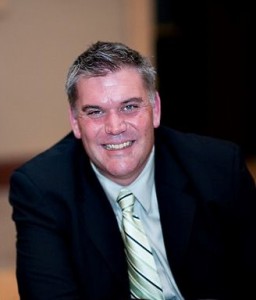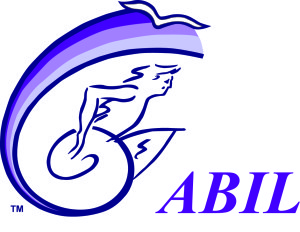You are invited to join AmeriCorps on Wednesday, October 21 at 1:00 p.m. Eastern to learn how AmeriCorps grants can support initiatives that engage and impact the disability community. The Notice of Funding Opportunity (NOFO) is available online and the applications are due January 20, 2016. AmeriCorps encourage all interested organizations to join this call.
Register online. For reasonable accommodations please email [email protected].
Required pre-call reading:
 Strong, comprehensive internal controls are a critical piece of sound financial management at successful CILs. Whether you are an experienced Accountant that is new to the non-profit world or an experienced CIL staffer that is new to accounting, this training will provide the overview of nonprofit internal controls that every CIL needs. You’ll also learn what your organization needs to do to meet the requirement to have written procedures for controls over federal awards by the end of the calendar year. Our presenters have decades of experience developing and advising on internal controls and regulations from both within and outside of Centers for Independent Living. Join us September 30th to learn why internal controls are so important and exactly what your CIL needs to have in place to be successful, compliant, and sustainable.
Strong, comprehensive internal controls are a critical piece of sound financial management at successful CILs. Whether you are an experienced Accountant that is new to the non-profit world or an experienced CIL staffer that is new to accounting, this training will provide the overview of nonprofit internal controls that every CIL needs. You’ll also learn what your organization needs to do to meet the requirement to have written procedures for controls over federal awards by the end of the calendar year. Our presenters have decades of experience developing and advising on internal controls and regulations from both within and outside of Centers for Independent Living. Join us September 30th to learn why internal controls are so important and exactly what your CIL needs to have in place to be successful, compliant, and sustainable. Keri Gray of Longview, Texas has been selected to serve as the 2015-2016 Youth Transitions Fellow at the National Council on Independent Living (NCIL), the longest-running national cross-disability, grassroots organization run by and for people with disabilities. Sponsored by The HSC Foundation, the Youth Transitions Fellowship provides a young person with a disability an opportunity to gain professional experience in a position designed to improve coalitions and youth-based programs. The HSC Foundation partnered with NCIL to fund the fellowship as part of its mission to help young people find self-directed paths to adulthood and employment.
Keri Gray of Longview, Texas has been selected to serve as the 2015-2016 Youth Transitions Fellow at the National Council on Independent Living (NCIL), the longest-running national cross-disability, grassroots organization run by and for people with disabilities. Sponsored by The HSC Foundation, the Youth Transitions Fellowship provides a young person with a disability an opportunity to gain professional experience in a position designed to improve coalitions and youth-based programs. The HSC Foundation partnered with NCIL to fund the fellowship as part of its mission to help young people find self-directed paths to adulthood and employment. Throughout history we have seen the LGBTQ and disability communities on similar paths: it was the classification of queer folks as mentally ill that allowed authorities to raid the Stonewall Inn which led to riots; as Ed Roberts and Judy Heumann were navigating government systems for access in the 1970’s, Harvey Milk was also in the San Francisco Bay Area defending access to employment for gay and lesbian teachers from an attack at the ballot box; the recent marriage equality victories demonstrate how we may win the same equality for people with disabilities on social security who seek to marry and not lose their benefits; and today we must recognize the sad truth that transgender identity is still listed as a mental health disability.
Throughout history we have seen the LGBTQ and disability communities on similar paths: it was the classification of queer folks as mentally ill that allowed authorities to raid the Stonewall Inn which led to riots; as Ed Roberts and Judy Heumann were navigating government systems for access in the 1970’s, Harvey Milk was also in the San Francisco Bay Area defending access to employment for gay and lesbian teachers from an attack at the ballot box; the recent marriage equality victories demonstrate how we may win the same equality for people with disabilities on social security who seek to marry and not lose their benefits; and today we must recognize the sad truth that transgender identity is still listed as a mental health disability. ABIL recently updated our policy and procedure for accommodating individuals with Environmental Sensitivities with the help of national experts on the topic and we wanted to share it with other CILs. It isn’t perfect. It is one example of what one CIL has done. We realize this is a difficult topic to address because everyone is different and because our environments are contaminated with a barrage of manmade chemicals and Y-FY/radio waves that are difficult to avoid. Still, it is our responsibility and desire to have our programs and facilities as accessible as possible for our employees and the consumers we serve who experience environmental illness.
ABIL recently updated our policy and procedure for accommodating individuals with Environmental Sensitivities with the help of national experts on the topic and we wanted to share it with other CILs. It isn’t perfect. It is one example of what one CIL has done. We realize this is a difficult topic to address because everyone is different and because our environments are contaminated with a barrage of manmade chemicals and Y-FY/radio waves that are difficult to avoid. Still, it is our responsibility and desire to have our programs and facilities as accessible as possible for our employees and the consumers we serve who experience environmental illness. You might believe that asking board members to give a cash gift to your organization is too much. After all, your members do so much for you. They promote you. They give oodles of time. They willingly offer expertise. Asking board members, who do so much, to also give a cash gift is too much right?
You might believe that asking board members to give a cash gift to your organization is too much. After all, your members do so much for you. They promote you. They give oodles of time. They willingly offer expertise. Asking board members, who do so much, to also give a cash gift is too much right? The concern of the disability, military and veterans, and aging communities in suicide prevention is understandable in view of research regarding rates and reasons, which consistently show these groups at increased risk. According to several studies, the biggest difference between notes of those who died as a result of suicide attempts and those who attempted it but survived was a far greater emphasis in the notes of those who died as a result of their attempts on the belief that they were a burden on other people and society at large.[1] Research also shows that isolation or removal of a person from his or her social group creates increased risk for suicide, and that people experiencing depression – a psychiatric disability – are at a 25 times greater risk for suicide than the general population.[2]
The concern of the disability, military and veterans, and aging communities in suicide prevention is understandable in view of research regarding rates and reasons, which consistently show these groups at increased risk. According to several studies, the biggest difference between notes of those who died as a result of suicide attempts and those who attempted it but survived was a far greater emphasis in the notes of those who died as a result of their attempts on the belief that they were a burden on other people and society at large.[1] Research also shows that isolation or removal of a person from his or her social group creates increased risk for suicide, and that people experiencing depression – a psychiatric disability – are at a 25 times greater risk for suicide than the general population.[2]
